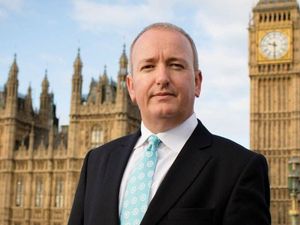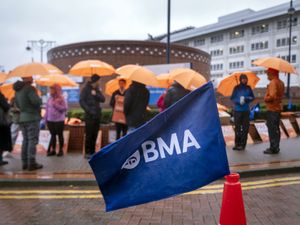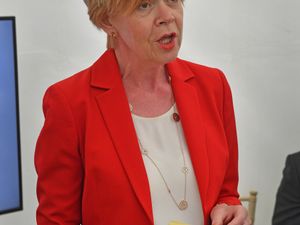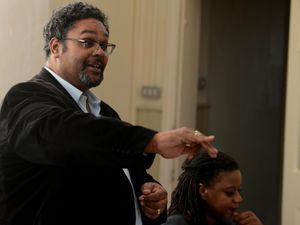The five key issues that could determine how our region votes at the General Election
The Prime Minister has spoken, and it seems those wanting an early General Election will have to wait a little longer.
Rishi Sunak said he expected a poll to be held 'in the second half of the year', scotching speculation – mainly coming from the opposition parties – that he could go for an election as early as May.
Mr Sunak doubtless hopes that playing a long game will give more time for a recovery in his party's fortunes, particularly if the economy improves and the cost of living crisis shows signs of abating.
What is not in doubt is that the West Midlands, with its proliferation of marginal seats, will be crucial to deciding who gets the keys to No. 10.
Here we look at some of the key battleground issues in the region, which could be crucial to determining the next government.
1. The economy
When asked about the key to electoral success, Bill Clinton famously replied "It's the economy, stupid", and people's economic wellbeing – and their perception of how it will change – is likely to be the biggest factor in determining how people will vote.
It is no great secret that the West Midlands has lagged behind London and the South East in recent years, with employment rates below the national average.
A study by research firm EY last year gave some hope for optimism, saying the West Midlands will be one of the UK's leading areas over the next two years, but that figure hides significant inequalities, with some parts of the region set to fare much better than others. Simon O'Neill, managing partner at EY in the Midlands, said the Black Country was disadvantaged by its dependence on the retail and manufacturing sectors, which were hit hard during the pandemic.
Levelling Up Secretary Michael Gove has announced a slew of new initiatives to revitalise the area over the past 12 months, including the West Midlands Investment Zone, which will create a 'green innovation corridor' in Wolverhampton, and the 'growth zones' for Dudley, Tipton and Walsall.
Whether these will bear any fruit by the autumn of next year remains to be seen. But the real acid test will be whether the cost of living, and energy prices in particular, can be brought under control.
2. Crime
A spate of fatal stabbings, including those of teenagers Ronan Kanda, Sekou Doucoure, Jack Lowe and Zane Smart, has left the West Midlands in a state of shock over the past couple of years, and put crime close to the top of the agenda for people in the region.
Latest figures put the annual crime rate in the West Midlands at 44.9 per 1,000 people, 29 per cent above the national average.
Violent crime accounts for 39.6 per cent of all offences committed, the second worst rate in the country.
There has also been a marked 36.5 per cent rise in shoplifting over the past year.
The Government has increased the number of police officers in recent years, but critics will argue these have merely replaced those lost in austerity measures imposed during David Cameron's first government. The coronavirus pandemic also led to a vast backlog of cases awaiting trial.
Which party has the best policies to reduce crime is likely to be crucial to deciding how the West Midlands votes at this year's General Election.
3. High Street decline
With its notably high density of mid-ranking town and city centres, the West Midlands has proved more vulnerable than most areas to the recent trend towards online shopping and out-of-town retail parks.
The after-effects of the coronavirus lockdown, coupled with the loss of a number of large retailers such as Wilko and Debenhams, have left many already struggling centres fighting for their lives.
The Government recently announced 'growth zones' for Dudley, Brierley Hill, Walsall and Tipton, which will allow business rates to be ring-fenced for reinvestment in those areas. However, Labour has pledged to abolish business rates – although it has yet to elaborate on how it will do this – which would presumably mean the end of the growth zones.
There has been much talk of towns changing their focus away from retail, and more towards residential and leisure use, but it remains to be seen how this will pan out in practice.
Voters, and small business owners in particular, will be studying the different party's policies in this area with great interest.
4. Immigration
Probably less of a concern than in coastal areas, but an issue nevertheless.
A survey carried out last year showed that the majority of people in almost every constituency in the West Midlands considered immigration levels to be 'too high'.
Concerns about immigration were highest in Wolverhampton South East, where 68 per cent said they thought levels were too high, compared to 10 per cent who did not. In Dudley North, 67 per cent thought levels were too high, the same as in West Bromwich West, while in Dudley South and Wolverhampton North East the figure was 66 per cent.
5. Housing and the green belt
While few would argue that there is an acute housing shortage in Britain, the collapse of the Black Country Plan amidst a row about building on green belt sites has highlighted just how delicate a subject this can be.
The plan, a joint venture between Dudley, Sandwell, Walsall and Wolverhampton councils, proposed that 76,000 homes should be built across the four authorities by 2039. But plans for 850 homes on two greenfield sites prompted Dudley Council to pull out of the plan.
Plans for 650 homes on a 284-acre greenbelt site known as Seven Cornfields, which acts as a green buffer between Dudley and Wolverhampton, also sparked a bitter backlash, and were eventually backed by Dudley, Wolverhampton and South Staffordshire councils.
Labour leader Sir Keir Starmer has pledged to tackle the housing crisis by building 'the next generation of new towns'. But where he proposes to build these could be crucial to how people living on the edge of the green belt will vote.





